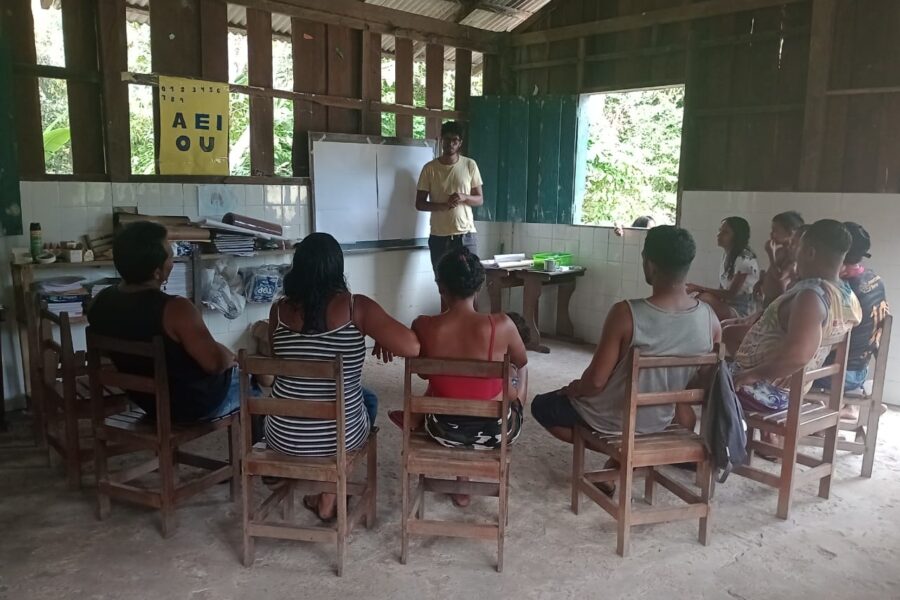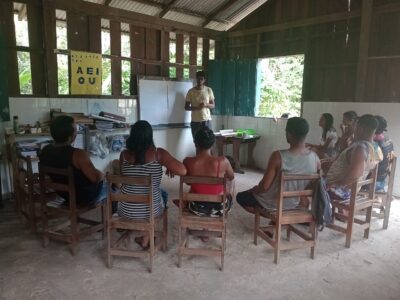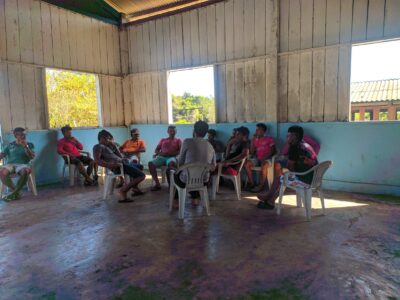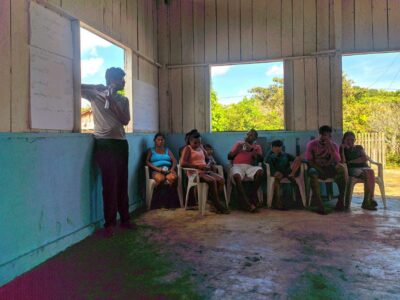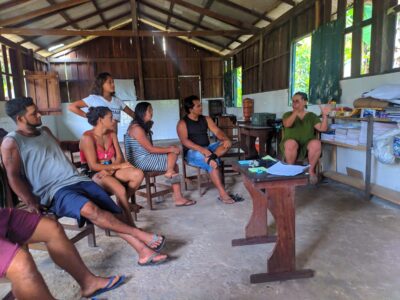This case study is part of community-university collaboration that includes researchers based at Michigan State University, USA and Federal University of Western Pará, Brazil, and three off-grid, traditional riverine communities in the Brazilian Amazon. The project aimed at co-designing and co-implementing photovoltaic systems to improve access to electricity for communities who live with limited or no access to electricity in isolated areas of the forest. Using participatory co-design as a methodological approach towards energy planning, three workshops were facilitated to elicit voices, values, needs, assets and visions of communities regarding their local energy systems. The outcomes of the workshop directly informed the work of the engineering team which actively implemented solar technologies and micro-grids in subsequent steps. Focusing on the short-term future (3-5 years), the vision is presented in a storyline format that describes future changes that energy can bring to off-grid communities. To access the vision, see Box 1 and Section 3.3 of our paper: https://www.sciencedirect.com/science/article/pii/S2214629624004493
The study was impactful because it effectively implemented solar technologies in collaboration with off-grid communities in the Brazilian Amazon, which improved energy security and quality of life. The workshop were key to inform the work of the engineering team of the project.
The scenarios were made in: 2022
The scenarios look out to: 2027
